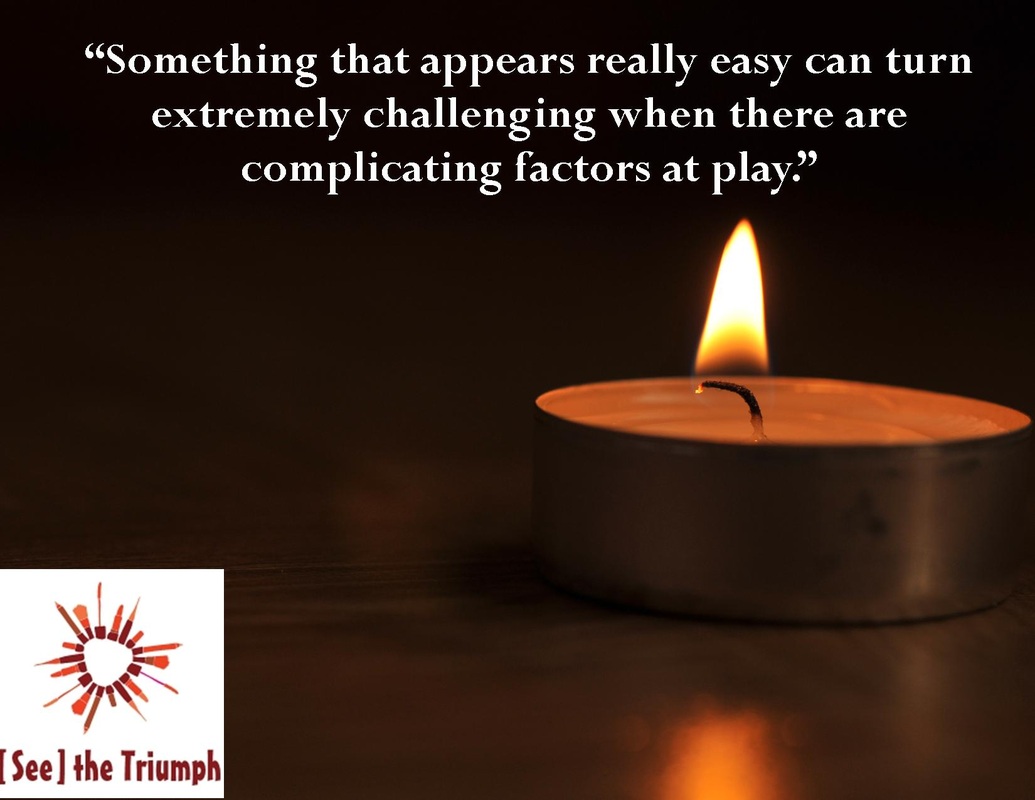|
3/10/2014 "I've Lost My Power"By Christine Murray, See the Triumph Co-Founder
Late last week, the city where I live was hit by a bad ice storm. I was one of the thousands of residents to lose electricity during the storm. As hours without power stretched into a few days, I began to realize just how much I take for granted so many of the basic things that keep my life running--hot water, heat during the winter, light, a dishwasher and washer/dryer, my computer and the Internet, and the list goes on… As the time without power wore on, I began to think more about a statement I’d said several times during the power outage: “I’ve lost my power.” Moving beyond the literal meaning of that statement, I thought about how this felt like such a very, well, disempowering statement. “I’ve lost my power.” I realized that when I said this, it resonated at a deeper level--a loss of control over knowing when my power would be restored, what I could do to keep my household running until then, and a shift into somewhat of a survival mode. This survival mode meant that, instead of thinking about big-picture ideas--such as what kind of parent I want to be or the next big project at work---I found myself thinking things like, “How do I keep my family safe and warm?” and “What can we eat since I can’t cook and had to throw away the food in my refrigerator and freezer?” And then, I realized why the statement, “I’ve lost my power,” was ringing so loudly in my mind. The past few weeks, I’ve been going back through the stories of our research participants, especially the parts about how they’d experienced stigma in their lives related to abuse. I realized I’d heard variations of that statement coming from many of the survivors in our research, such as the following examples:
We have to meet people where they are and understand the unique challenges they face in their lives, and then trust that often they are doing the best they can given the circumstances of their lives. It would be unfair for me or anyone else to have have the same expectations for how much I could get done--both personally and professionally--during a few days when I don’t have electricity and a few days when I do. And yet, through our research, we heard many survivors say something like the following quote: “You hear a lot of ‘Why didn't you just leave?’” When people fail to consider all the many challenges people face within an abusive relationship, it may be easy to assume that they can easily leave. But this assumption lacks an understanding of just how complex the process of leaving an abusive relationship is. Something that appears really easy can turn extremely challenging when there are complicating factors at play. This is true whether we’re talking about preparing a meal in the absence of electricity or about leaving an abusive relationship. I’m thankful my loss of electricity was temporary. Feeling that “loss of power” was a good reminder of how important it is to feel empowered and understood, and this is a goal we’re aiming for through See the Triumph. I challenge all of you to think about times in your own lives when you’ve lost power--of any sort--and what lessons those times taught you. I’d love to hear from you with your own stories of losing--and reclaiming--your power. Comments are closed.
|
Archives
July 2024
CategoriesAll About Intimate Partner Violence About Intimate Partner Violence Advocacy Ambassadors Children Churches College Campuses Cultural Issues Domestic Violence Awareness Month Financial Recovery How To Help A Friend Human Rights Human-rights Immigrants International Media Overcoming Past Abuse Overcoming-past-abuse Parenting Prevention Resources For Survivors Safe Relationships Following Abuse Schools Selfcare Self-care Sexual Assault Sexuality Social Justice Social-justice Stigma Supporting Survivors Survivor Quotes Survivor-quotes Survivor Stories Teen Dating Violence Trafficking Transformative-approaches |
Search by typing & pressing enter



 RSS Feed
RSS Feed